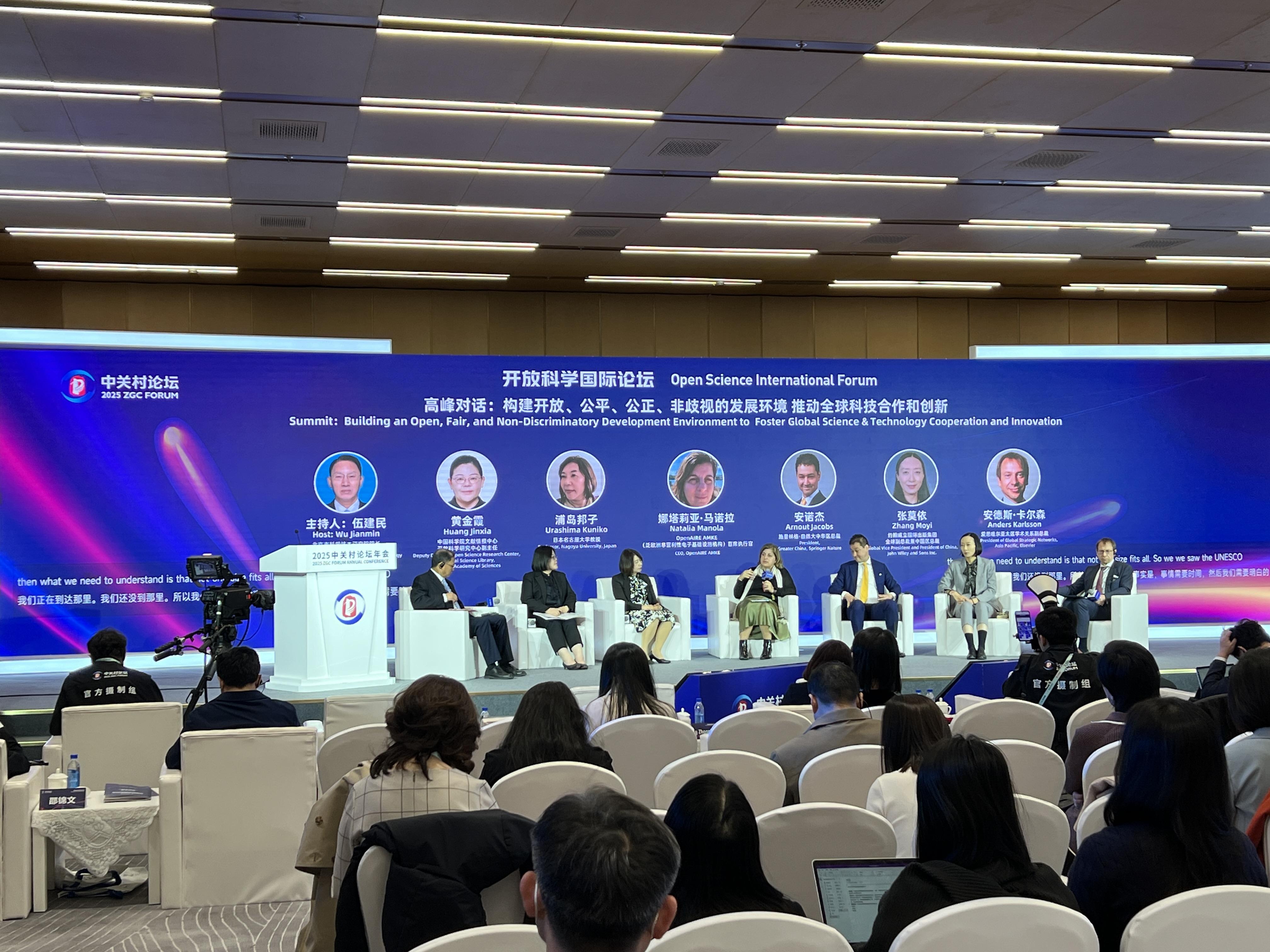Open Scientific Infrastructure: Catalyst for Intl. Sci-tech Cooperation

It is necessary to promote the opening up and sharing of scientific research infrastructure, make good use of multilateral mechanisms, and establish and improve international open sharing platforms, Chen Jiachang, China's vice minister of science and technology, said at the Open Science International Forum, part of the 2025 Zhongguancun Forum Annual Conference, on March 28.
"China has always been an active advocate and pioneer demonstrator of open science," Chen added.
To promote cooperation and joint construction of major scientific research infrastructure and open sharing such infrastructure, China, Brazil, South Africa and the African Union jointly launched the Initiative on International Cooperation in Open Science last year.
This forum, themed "Open Sharing for Further International Scientific Cooperation," focused on strategies, policies and mechanisms to implement the joint initiative. It discussed how to build an open, fair and non-discriminatory development environment to foster global sci-tech cooperation and innovation.
China is an ardent advocate of opening up scientific research infrastructure. In January 2015, the State Council issued its opinions on opening up major scientific research infrastructure and large-scale scientific research instruments to society.
Since this needs a management system and methods, in 2017, the Ministry of Science and Technology, the National Development and Reform Commission, and the Ministry of Finance together issued the required administrative measures.
Liu Xiwen, director of the National Science Library, Chinese Academy of Sciences (NSLC), told Science and Technology Daily (S&T Daily) that NSLC launched an open-science public academic platform, PubScholar, in 2023 to share scientific data, academic papers and other content.
NSLC has also created an international version of the platform, which can be used in the "Belt and Road" and Global South countries. Currently, it is in talks with institutions and organizations in the European Union, South Africa, the United States and other countries and regions to jointly construct an "open science information infrastructure sharing and collaboration network alliance."
According to Zhang Shiyun, director of the Institute of Science and Technology Information of Beijing Academy of Science and Technology, open science is driven by five modes: data sharing, AI, research facilities, major global issues and interdisciplinary fusion.
Huairou Science City in Beijing is an exemplar of open sharing. Ten of its 37 scientific facilities are open, supporting 622 domestic and international teams in their in-depth research. "This is a vivid example of advancing innovation cooperation with scientific research facilities," Zhang said.
Shahbaz Khan, director and representative to UNESCO Regional Office for East Asia, lauded China's participation in open science and practical contribution to it.
Other forum participants also spoke of their expectations for more open scientific infrastructure.
Damian Pattinson, vice chair of the Board for the Center for Open Science in the U.S., called shared open infrastructure a very important part in ensuring that science is made fully open. More shared infrastructure, the digital infrastructure in particular, needs to be more widely used across different countries, he added.
Natalia Manola, CEO of OpenAIRE, a European non-profit promoting open scholarship, said an important part of the open science cooperation between Europe and China is to connect the relevant infrastructures on both sides.
She told S&T Daily that OpenAIRE has signed a memorandum of understanding with NSLC, and looks forward to advancing open science on a global scale.







